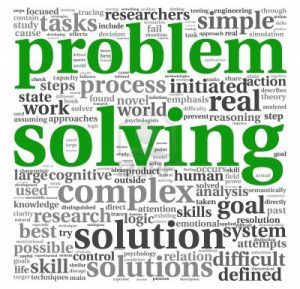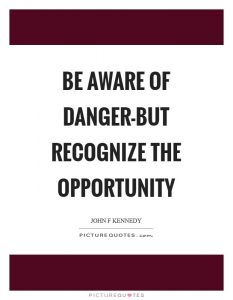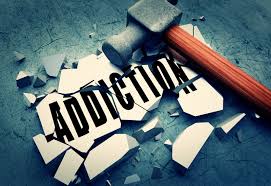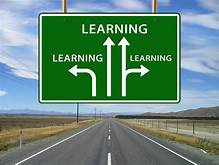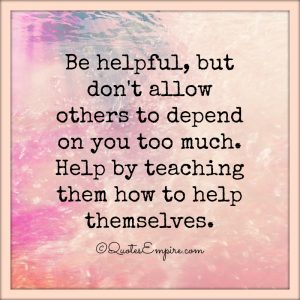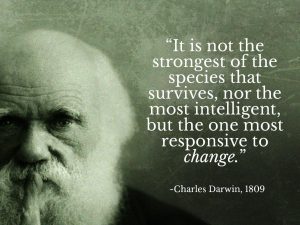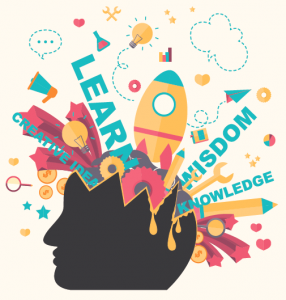 Our path in life is defined by the things we Learn. We become what we Learn.
Our path in life is defined by the things we Learn. We become what we Learn.
This is affected by the subjects we choose and just as profoundly determined by those items we do not study or embrace.
We make Learning Choices to facilitate specific progress in the direction we wish to proceed.
And these CHOICES are made:
Most ominous is Choice By Exclusion, for when one major course is followed then innumerable alternatives are passed over as the inherent consequence. This has a major impact on our lives as it defines how we will now not turn out.
Humans are conceived and born as somewhat specific, predefined entities; this by our DNA and reptilian brains with inbuilt reactions and instincts. Thereafter it’s up to us.
Initially, we are flooded during formative years by specific culture(s), exposures, events, surroundings and incidents. These progressively begin to shape us in the very earliest years.
We are taught specific skills and behaviors. We develop consequential attitudes, propensities and perspectives. Our Psyche is formed.
But what of the impact of selective learning? By CHOICE (see earlier) we pick things to learn; those we want and others we must.
And by this very process we miss out on countless possibilities…
I learn to be a Botanist, so my expertise as a Doctor of Medicine, Engineer, Chemist, Fisherman, Hunter, Environmentalist and so on, are less. We unfortunately often see ourselves with limited range and are consequentially easily accepting of a diminished scope…
We Learn how to Present and Maintain ourselves; selecting particular code(s) of behavior, attire, routine(s), eating habits and more.
And we develop and focus on typically singular Career and Lifestyle paths. Some individuals learn a little of other fields and alternatives. But these are usually minor excursions compared to our primary pursuits.
Most areas of expertise run deep; consequently, in-depth mastery of many realms is onerous at best.
So, we become largely defined by what we Learn through Free Choice, affected by internal desires and external influence.
A direction once selected is increasingly difficult to divest as time passes.
Often, we develop side-channels or hobbies from other paths to mitigate the frustrations of our linear progressions. We learn to fish, write, dabble in medicine or (say) immerse ourselves in current affairs, etc.
But most closely follow a singular path of set career, family, activities, behavior(s), associations and friends. They venture little and stray only slightly from well-defined and boundedpaths.
We become what we have Learned and Selected.
If our Choices are narrow, so are our lives.
Only when we invest in learning from elsewhere do we broaden to expanded experience(s).
All this is can be well and good providing we choose wisely and fittingly, early on.
But what if we chose poorly?
What if we can be much more and diverse?
What if we want to change and redirect?
Some do. People make career and lifestyle changes later in their lives. Often these choices work well and become fulfilling. The opportunity usually exists when an individual has the imagination, desire and will take the plunge.
Yet it’s better if we find our way early in life. Better delay at the outset and choose wisely than wrongly invest and pursue a less attractive course.
Our ability to make course corrections depends on self-image, skills, intellect, opportunity, passion, etc. Both the Psyche and circumstance will enable or hinder new ambitions.
Initial Learning Choices ideally need to be aligned with desirable (i.e. wanted by the individual) end results. The trick is to know oneself and target wisely. Not always an easy task.
And as we progress though life we should understand how and if we change and evolve and course-correct our learning and direction accordingly.
As for guiding children (and Others), things are predictablyaligned; giving them free reign to choose, providing exposure, opportunity, encouragement and suggesting diverse possibilities all empower them to select wisely.
Did you Learn what you needed for your chosen path through life?
Have you invested in Learning that keeps you on track?
What have you Learned (or, are Learning) that helps complete who you wish to become?
There is usually some way to get on track. You can Learn what you need, and course correct.
All that is necessary is for you to imagine and choose.
Ian R. Mackintosh is the author of Empower Your Inner Manager Twitter@ianrmackintosh.




